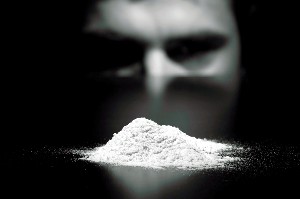23 September 2014. A clinical trial is underway testing the safety of a new therapy designed to treat addictions and compulsive behavior by Savant HWP, a drug development company in San Carlos, California. The study is testing the compound 18-methoxycoronaridine or 18-MC, conducted in South America by a Brazilian partner company identified as Hebron Farmaceutica S.A.
The compound 18-MC is a synthetic version of ibogaine, a plant-based medicine believed to have properties that can relieve addictions, but without the toxicity associated with natural ibogaine compounds. 18-MC addresses the reward pathways, where fluctuations in dopamine drive pleasure-seeking behavior, and seeks to control the underlying addictive mechanism in the brain. Most other addiction-control treatments target receptors of the addictive compounds, like methadone as a substitute for heroin.
Research by Stanley Glick, a professor emeritus at Albany Medical College in New York, shows 18-MC can reduce addictive behavior associated with cocaine, methamphetamine, morphine, nicotine, and alcohol in lab animal tests, where the animals self-administer the addictive substances. Glick is one of the founders of Savant HWP that licenses the intellectual property from Albany and other institutions collaborating with Glick. Savant HWP’s development of 18-MC as a commercial compound is funded by a $6.5 million grant in 2013 from National Institute of Drug Abuse, part of National Institutes of Health.
The trial is testing a single dose 18-MC in a double-blind, placebo-controlled study among healthy volunteers. A story from June 2014 in the Albany Times-Union says the Food and Drug Administration had last minute questions about the sensitivity of some lab animals to 18-MC as an addiction treatment. However, the chemistry in 18-MC also affects molecular pathways addressing the tropical parasitic disease leishmaniasis. As a result, says the newspaper, the trial conducted by Hebron Farmaceutica is testing 18-MC for the drug’s safety, but in the context as a leishmaniasis treatment, not as an addiction treatment.
Savant HWP co-founder and chairman Scott Freeman says in a company statement that initial reports from the trial show the drug is well-tolerated among the volunteer subjects. “Safety and dose-ranging studies are continuing,” adds Freeman, “and we expect to present detailed results at medical meetings and in scientific publications at the conclusion of the trial.”
Read more:
- Medical Centers to Develop Brain Signal Tracking, Therapies
- NIH Funds Three New Neurologic Drug Discovery Projects
- FDA Approves Maintenance Drug to Treat Opioid Dependence
- Research Funded for DNA Vaccine to Create Nicotine Immunity
- Preclinical Test Shows Vaccine Stops Cocaine Reaching Brain
* * *


 RSS - Posts
RSS - Posts
You must be logged in to post a comment.